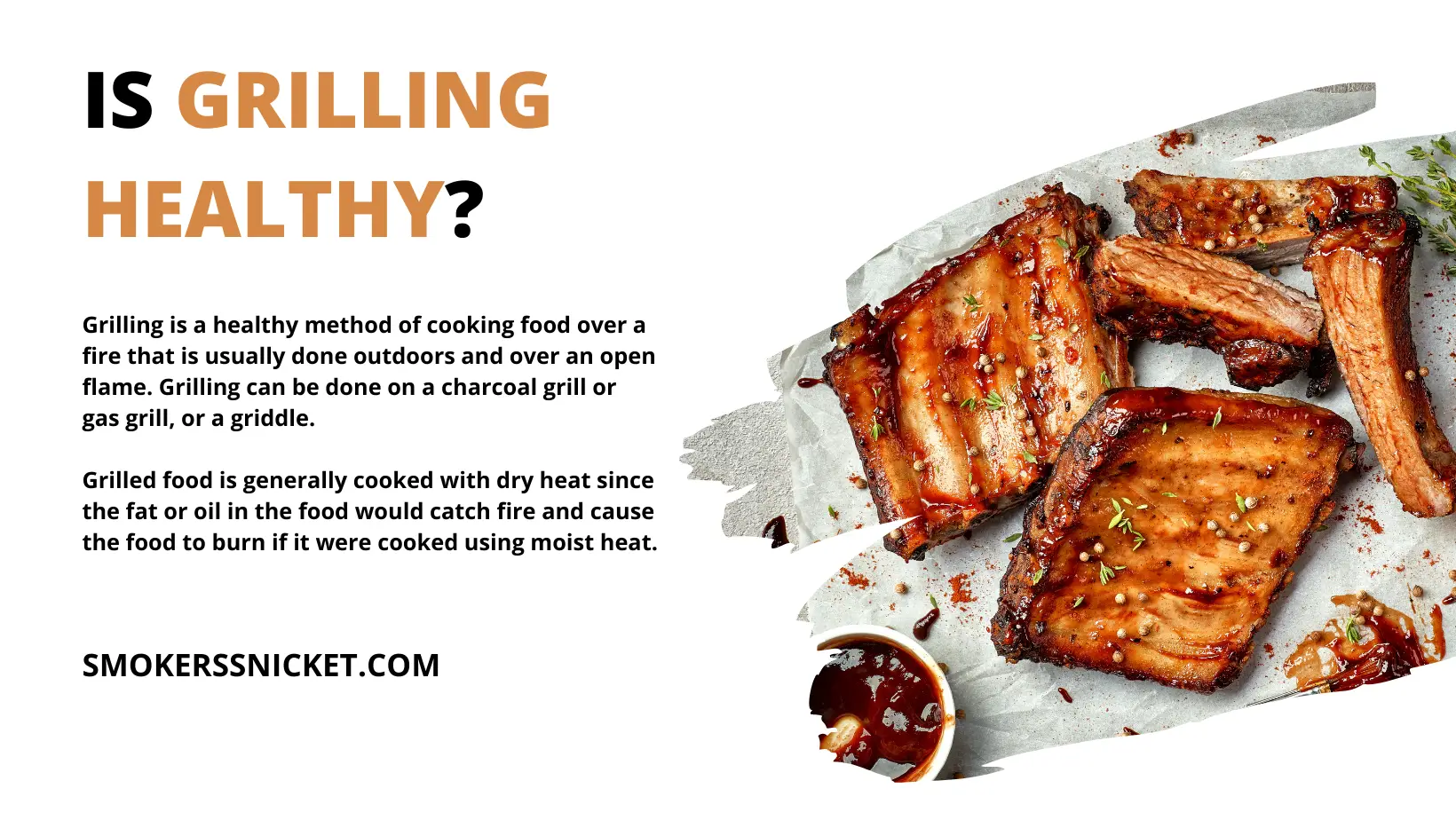
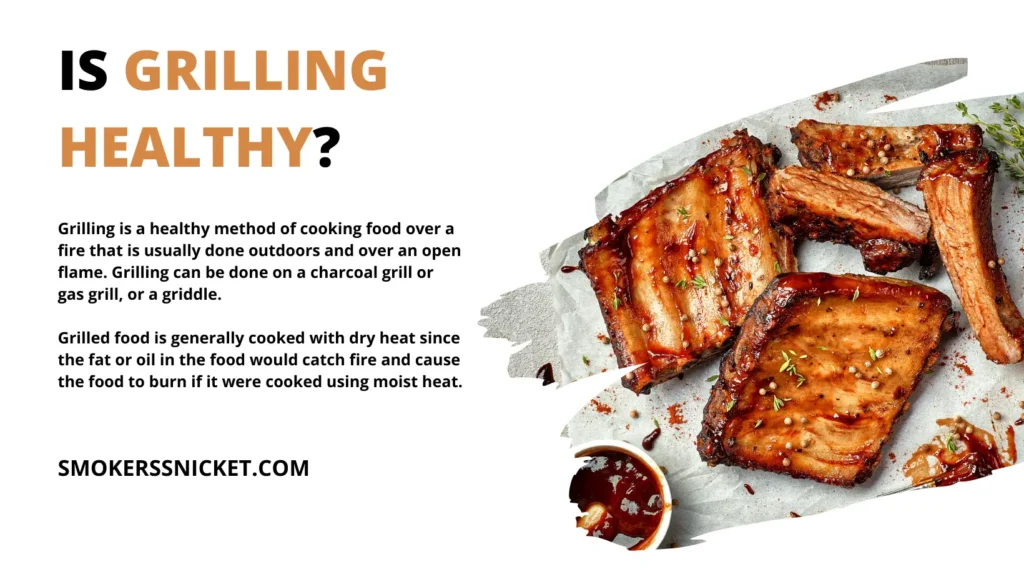
This image is property of smokerssnicket.com.
Is Grilling Food Healthier Than Eating? Do you ever ponder whether grilling food is healthier than consuming it through other means? It’s a topic that often sparks curiosity and warrants further examination.
With the sizzling heat of the grill, coupled with the enticing aroma wafting through the air, one might assume that grilled food is automatically healthier. However, it’s essential to delve deeper into the matter to truly understand the implications.
Numerous factors come into play when evaluating the healthiness of grilled food. While grilling can be a fantastic way to cook, it is crucial to consider the potential risks associated with the process. For instance, when exposed to high temperatures, certain compounds found in meat, poultry, and fish can form harmful substances known as heterocyclic amines (HCAs) and polycyclic aromatic hydrocarbons (PAHs).
These compounds have been linked to an increased risk of certain cancers. So, it’s essential to strike a balance and adopt healthier grilling practices, such as marinating meats, to reduce these harmful substances’ formation and ensure proper cooking times to minimize their production.
In conclusion, the question of whether grilling food is inherently healthier than other cooking methods is not a straightforward one. While grilling can impart a unique flavor and create an enjoyable dining experience, it is vital to approach it mindfully and take precautions to mitigate potential risks.
By being aware of the potential health implications and employing healthier grilling techniques, you can make informed choices for a balanced and gratifying culinary journey.
Benefits of Grilling Food
Grilling is not only a delicious way to cook food, but it also offers several health benefits. When you grill food, you are able to retain more of the essential nutrients compared to other cooking methods.
This is because grilling generally requires less water and cooking time, which helps to preserve the vitamins and minerals present in the food. By grilling your meals, you can maximize the nutritional value of the ingredients you use.
Furthermore, grilling requires less added fats than other methods, such as frying or deep-frying. When you grill food, the fat naturally drips away, contributing to a reduction in the overall fat content of the dish. This is especially beneficial for those conscious about their fat intake or trying to maintain a healthy weight. By grilling your food, you can enjoy tasty dishes without the unnecessary added fats.
In addition to its nutritional advantages, grilling also enhances the flavor of food. The searing heat from the grill creates a savory, smoky taste that adds depth and complexity to the dishes.
Whether it’s the caramelization of sugars on fruits or the charring of meat, grilling imparts a unique flavor profile that cannot be replicated with other cooking methods. It brings out the ingredients’ natural flavors, providing a burst of deliciousness that will delight your taste buds.
Potential Health Concerns
While grilling offers numerous benefits, it is essential to be aware of potential health concerns associated with this cooking method. Two compounds can form when food is grilled at high temperatures: heterocyclic amines (HCAs) and polycyclic aromatic hydrocarbons (PAHs).
These substances are known to have carcinogenic properties and may contribute to an increased risk of developing certain types of cancer.
Heterocyclic amines (HCAs) are formed when amino acids and creatine, which are naturally present in meat and poultry, react at high temperatures. Exposure to HCAs has been linked to an increased risk of colorectal, stomach, and pancreatic cancers.
Similarly, polycyclic aromatic hydrocarbons (PAHs) are formed when fat and juices from meat drip onto hot coals or heating elements, causing smoke that deposits onto the food. PAHs have been associated with an elevated risk of lung, bladder, and skin cancers.
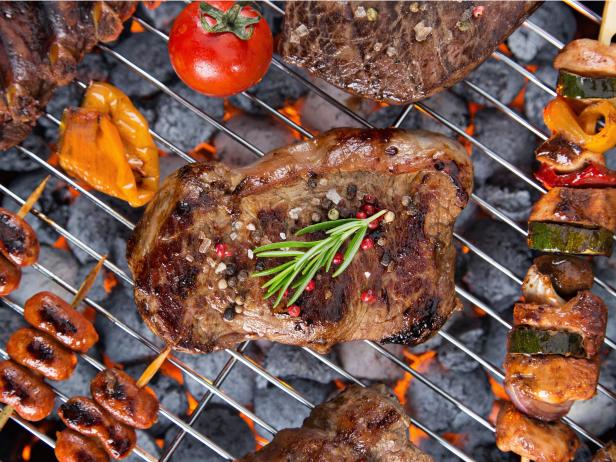
This image is property of food.fnr.sndimg.com.
Grilling and Cancer Risk!
While the formation of HCAs and PAHs during grilling is a potential concern, it is essential to understand that the risk of developing cancer from grilled foods depends on various factors. These include the cooking temperature, the cooking time, the type of food being grilled, and the cooking methods employed.
To minimize the risk associated with HCAs and PAHs, it is crucial to employ strategies that can help reduce their formation. One way to achieve this is by pre-cooking the food partially before grilling. This can be done through techniques like boiling, microwaving, or oven-roasting, which can help reduce the cooking time and decrease the formation of these compounds.
Another effective method is to marinate the food. Studies suggest that marinating meat, poultry, or fish before grilling can significantly reduce the formation of HCAs. The acidic components in marinades, such as vinegar or citrus juices, have been found to inhibit the production of these harmful compounds. Additionally, adding herbs, spices, and antioxidants to marinades can further enhance their protective effects.
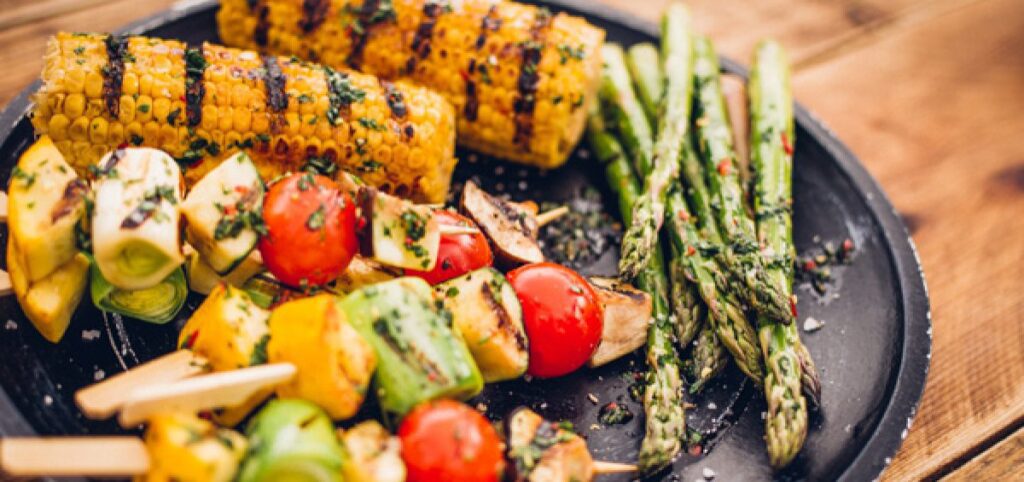
This image is property of medcor.com.
Tips for Healthy Grilling
To enjoy the benefits of grilling while minimizing potential risks, consider the following tips for healthy grilling:
1. Choosing Lean Meat and Poultry
Opt for lean cuts of meat and poultry to reduce the fat content and minimize flare-ups. Removing visible fat before grilling can further reduce the risks associated with HCAs and PAHs.
2. Marinating Foods
Marinate your meats, poultry, or fish before grilling to help reduce the formation of HCAs. Use marinades that contain acidic ingredients like vinegar, lemon juice, yogurt, herbs, spices, and antioxidants.
3. Preventing Flare-ups
Flare-ups occur when fat drips onto the flames, resulting in smoke that can deposit PAHs onto the food. Keep a spray bottle filled with water nearby to prevent flare-ups, and periodically spray the flames. Also, could you consider using a grill with a drip tray or placing aluminum foil on the grill grates to catch any dripping fat?
4. Adding Colorful Vegetables and Fruits
Grilling is not limited to just meat and poultry. Incorporate a variety of colorful vegetables and fruits into your grilling repertoire for added nutritional benefits. Grilled vegetables and fruits are not only delicious but also contribute to a well-rounded and healthier meal.
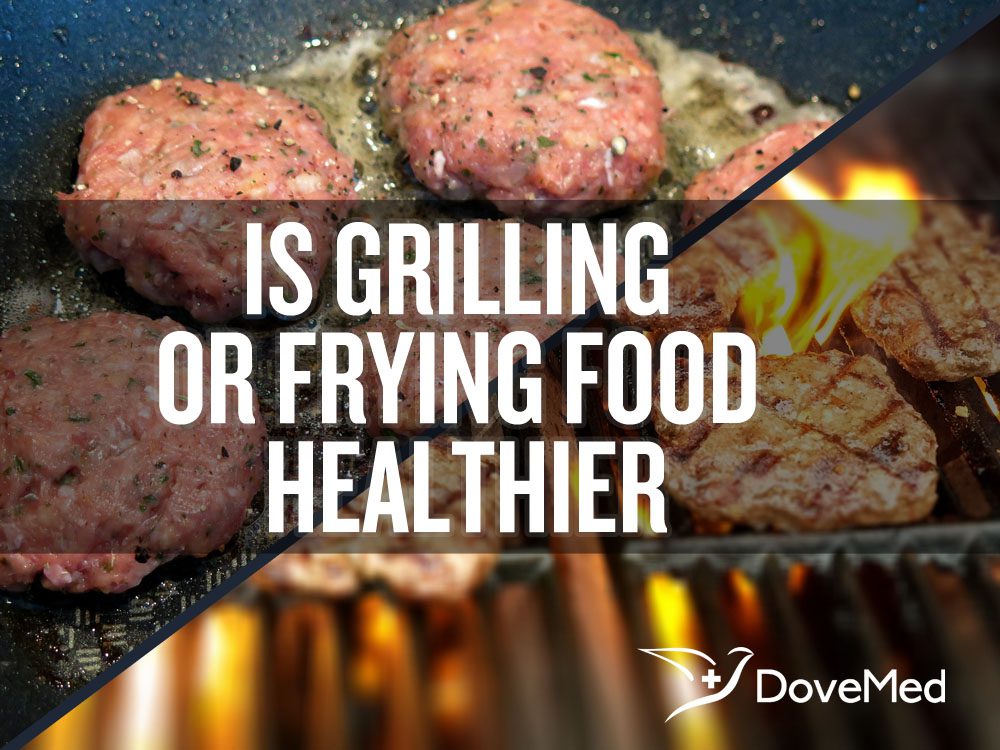
This image is property of dovemed-prod-k8s.s3.amazonaws.com.
Other Considerations
In addition to the cooking methods and choices associated with grilling, other factors should be considered for a healthier grilling experience. Cooking temperature and time play significant roles in the formation of HCAs and PAHs. It is important to monitor the grill’s temperature and cook food thoroughly without burning or charring excessively.
Furthermore, purchasing high-quality ingredients is crucial for healthier grilling. Choose organic or locally sourced products whenever possible to reduce potential exposure to pesticides, hormones, and antibiotics. Quality ingredients not only contribute to better flavors but also ensure your grilled meals are as healthy as possible.

This image is property of hips.hearstapps.com.
Conclusion
Grilling food can be a flavorful and nutrient-rich cooking method when done properly. By understanding the benefits of grilling and taking necessary precautions to minimize potential health risks, you can enjoy delicious grilled meals while maintaining a healthy lifestyle.
Choose lean meats, marinate your foods, prevent flare-ups, and incorporate colorful vegetables and fruits into your grilling routine. Remember to consider cooking temperature and time, and select high-quality ingredients for a genuinely satisfying and healthier grilling experience. So fire up the grill, savor the flavors, and reap the benefits of this popular cooking technique.


